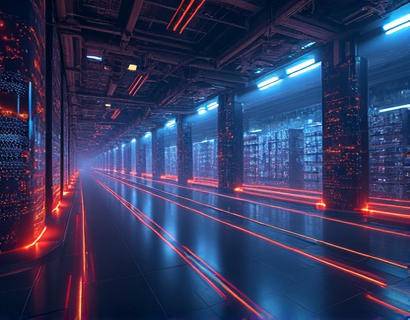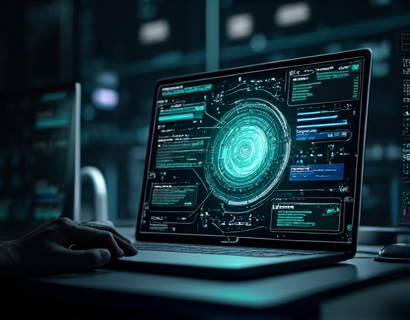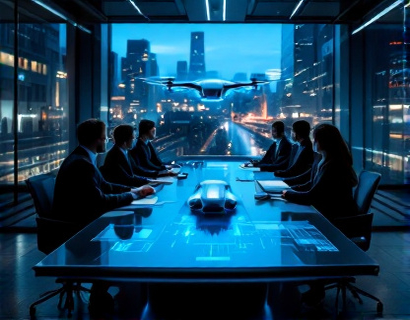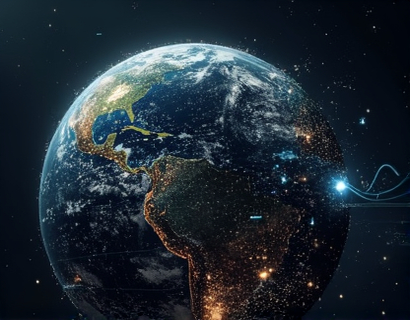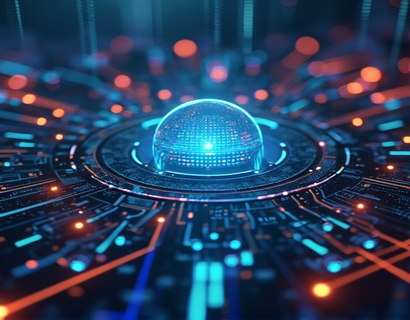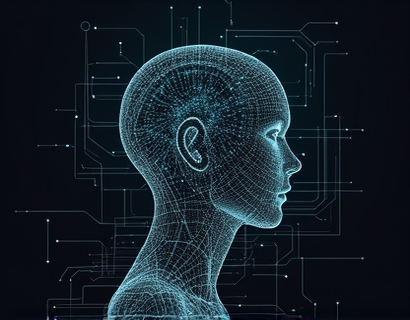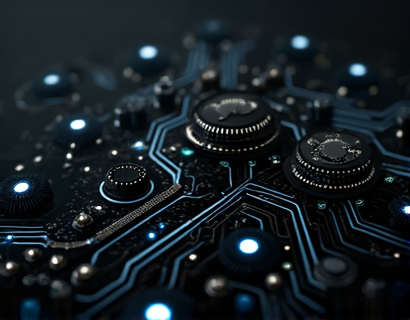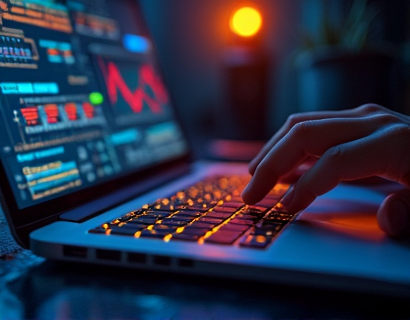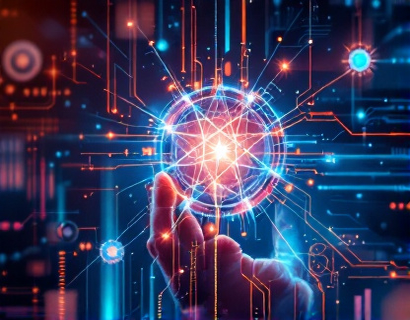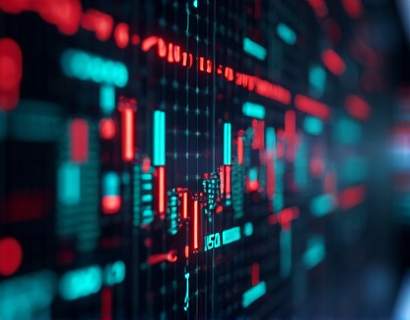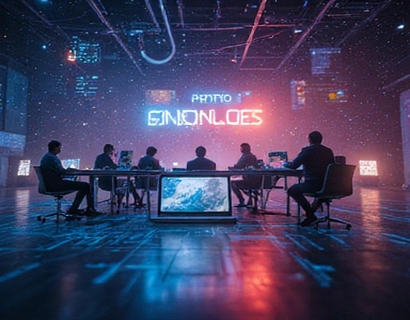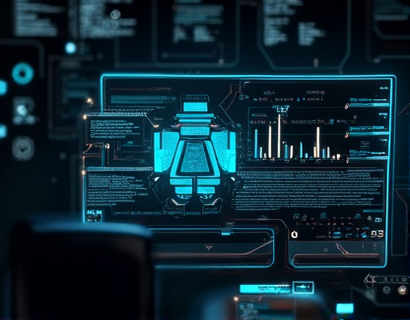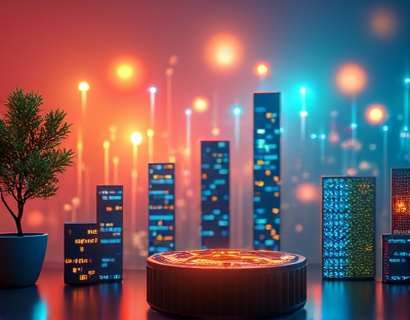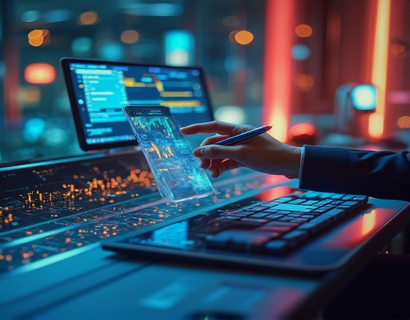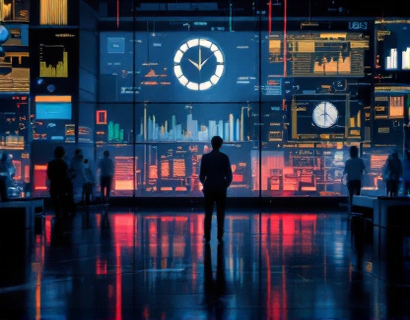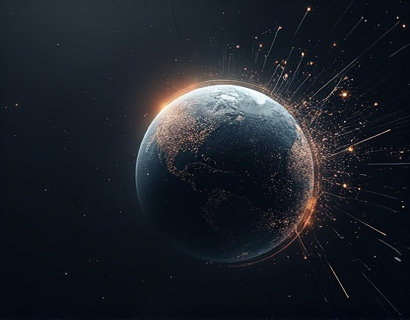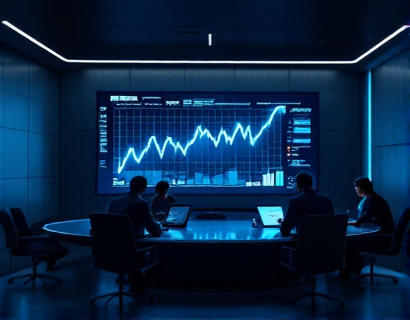Decentralized AI Synergy: Revolutionizing Digital Solutions with Crypto Innovation
The integration of artificial intelligence (AI) with cryptocurrency is ushering in a new era of digital transformation. This synergy, often referred to as Decentralized AI, is redefining the landscape of online interactions and services. By leveraging the strengths of both technologies, developers and innovators are creating decentralized applications (dApps) and services that enhance user experience, ensure data privacy, and promote transparency. This article explores the transformative power of this fusion, delving into its current state, potential future developments, and the broader implications for the digital world.
The foundation of Decentralized AI lies in the combination of AI's ability to process and analyze vast amounts of data with blockchain's inherent properties of decentralization, security, and transparency. Traditional AI systems often rely on centralized servers, which can be vulnerable to data breaches and manipulation. In contrast, Decentralized AI distributes these processes across a network of nodes, making it more resilient and secure. This decentralized approach not only enhances security but also democratizes access to AI technologies, allowing a broader range of developers and users to participate in the ecosystem.
Enhanced Security and Privacy
One of the most significant advantages of Decentralized AI is the enhanced security and privacy it offers. Blockchain technology ensures that data is immutable and tamper-proof, reducing the risk of unauthorized access and data manipulation. Smart contracts, self-executing contracts with the terms directly written into code, can automate and enforce agreements without the need for intermediaries. This not only speeds up processes but also minimizes the potential for fraud and errors. For users, this means a higher level of trust and control over their data, as they can choose what information to share and with whom.
Privacy is another critical aspect where Decentralized AI shines. Traditional AI systems often require vast amounts of personal data to function effectively, raising concerns about data privacy and compliance with regulations like GDPR. Decentralized AI addresses this by using techniques such as federated learning, where models are trained across multiple decentralized devices or servers holding local data samples, without exchanging them. This approach ensures that sensitive data remains on the user's device, significantly reducing the risk of data breaches.
Improved Efficiency and Scalability
The decentralized nature of AI also contributes to improved efficiency and scalability. By distributing computational tasks across a network of nodes, Decentralized AI can leverage the collective processing power of the network, leading to faster and more efficient data processing. This distributed computing model reduces the load on any single server, preventing bottlenecks and ensuring that services remain responsive even under high demand. Additionally, the scalability of blockchain networks, enhanced by layer 2 solutions and sharding techniques, allows Decentralized AI to handle increasing amounts of data and users without compromising performance.
Energy efficiency is another area where Decentralized AI offers advantages. Traditional AI training and inference processes are energy-intensive, often relying on large data centers that consume significant amounts of electricity. Decentralized AI can distribute these tasks across a more diverse and energy-efficient network, potentially reducing the overall carbon footprint. Furthermore, the use of renewable energy sources by decentralized nodes can further minimize environmental impact.
Innovative Applications and Use Cases
The potential applications of Decentralized AI are vast and varied, spanning multiple industries and use cases. In healthcare, Decentralized AI can enhance diagnostic accuracy and personalize treatment plans by analyzing medical data from multiple sources while ensuring patient privacy. In finance, it can improve fraud detection and risk assessment by processing transaction data in real-time across a decentralized network. In supply chain management, Decentralized AI can provide transparent and traceable records of product movement, enhancing efficiency and trust among stakeholders.
In the realm of content creation and distribution, Decentralized AI can empower creators by automating tasks such as content moderation, personalized recommendations, and monetization. For instance, decentralized platforms can use AI to curate and recommend content based on user preferences, ensuring a more engaging and relevant experience. These platforms can also enable creators to retain more control over their content and revenue streams through blockchain-based tokenization.
Decentralized Marketplaces
Decentralized marketplaces are a prime example of the synergy between AI and blockchain. These platforms use AI to match buyers and sellers based on preferences, price, and other factors, while blockchain ensures secure and transparent transactions. Smart contracts automate the exchange process, reducing the need for intermediaries and lowering transaction costs. This combination not only enhances the user experience but also fosters a more inclusive and equitable marketplace.
Another exciting application is in the field of gaming. Decentralized AI can create more intelligent and adaptive game environments, enhancing the player experience. NFTs (Non-Fungible Tokens) and blockchain-based economies allow players to own and trade unique in-game assets, creating new revenue streams and fostering community engagement. AI-driven NPCs (non-player characters) can provide more realistic and challenging gameplay, further enriching the gaming experience.
Challenges and Considerations
Despite its numerous benefits, Decentralized AI faces several challenges that need to be addressed for widespread adoption. One of the primary challenges is the technical complexity involved in building and maintaining decentralized systems. Developers require a deep understanding of both AI and blockchain technologies, which can be a barrier to entry. Additionally, the interoperability between different blockchain platforms and AI frameworks is still an area that needs significant improvement to facilitate seamless integration and collaboration.
Regulatory uncertainty is another factor that can impact the growth of Decentralized AI. As this field operates at the intersection of technology and finance, it is subject to various regulatory frameworks that are still evolving. Ensuring compliance while maintaining the decentralized and innovative nature of these systems requires careful navigation and collaboration with regulatory bodies.
Scalability remains a critical challenge as well. While blockchain technology has made significant strides in recent years, it still faces limitations in terms of transaction throughput and latency. Solutions like sharding, sidechains, and off-chain computations are being explored to address these issues, but more work is needed to make Decentralized AI truly scalable and efficient.
Future Prospects and Trends
Looking ahead, the future of Decentralized AI is promising, with several trends and developments on the horizon. One key trend is the integration of AI with other emerging technologies such as the Internet of Things (IoT) and 5G networks. This convergence can lead to more intelligent and responsive systems, enabling real-time data processing and decision-making across a wide range of applications.
Another area of growth is the development of more user-friendly decentralized platforms and tools. As the barrier to entry decreases, more developers and users will be able to participate in the Decentralized AI ecosystem, driving innovation and adoption. The rise of low-code and no-code platforms will empower non-technical users to build and deploy AI-powered dApps, further democratizing access to these technologies.
Furthermore, the focus on sustainability and ethical AI will become increasingly important. As concerns about the environmental impact and ethical implications of AI grow, Decentralized AI can offer more transparent and accountable solutions. By leveraging renewable energy sources and ensuring data privacy, Decentralized AI can align with the values of a more conscious and responsible digital society.
Conclusion
The synergy between AI and cryptocurrency is poised to revolutionize the digital landscape, offering enhanced security, privacy, efficiency, and innovative applications across various industries. While challenges remain, the potential benefits make this field an exciting area of exploration and development. As the technology matures and adoption grows, Decentralized AI will continue to shape the future of online interactions and services, paving the way for a more decentralized, transparent, and user-centric digital world.




